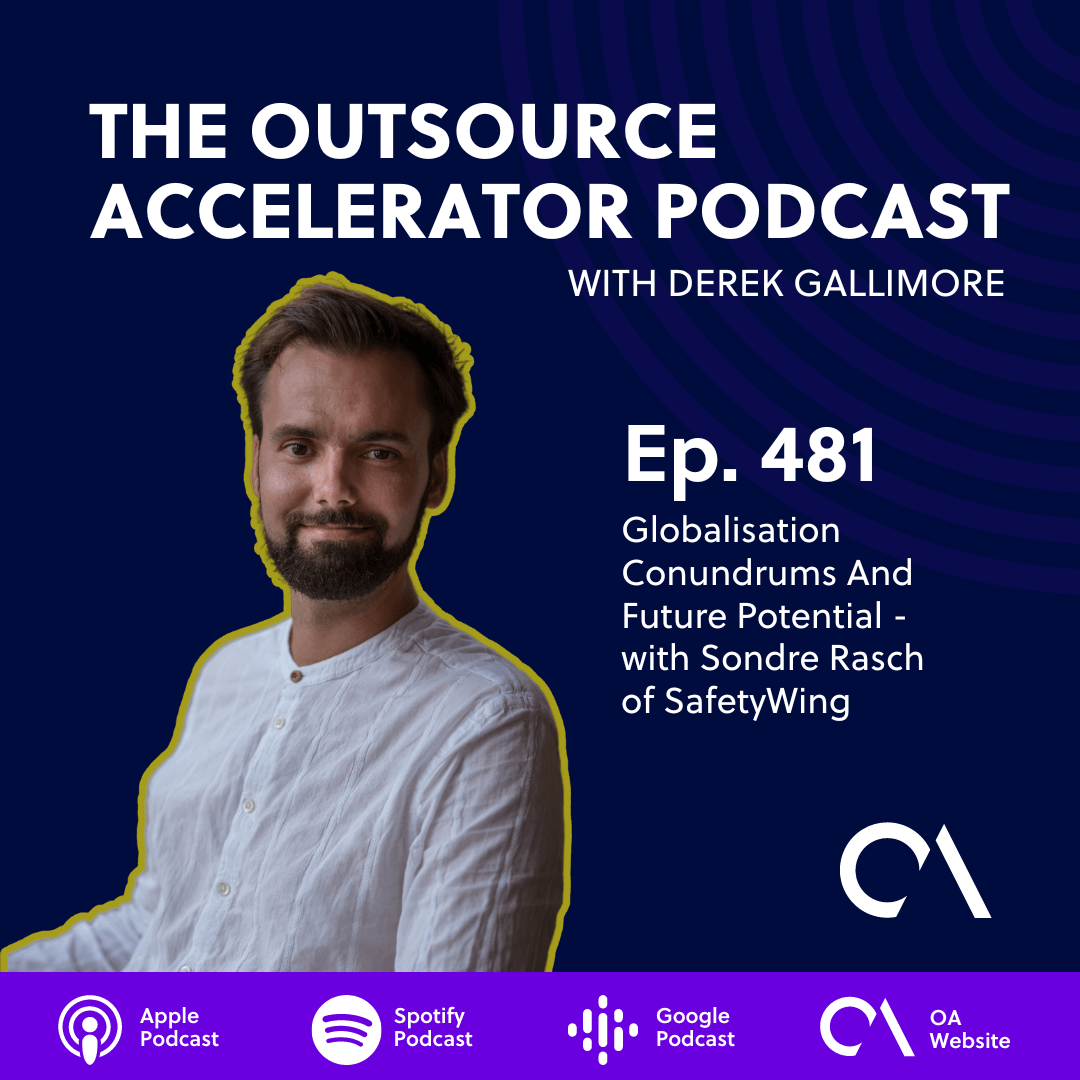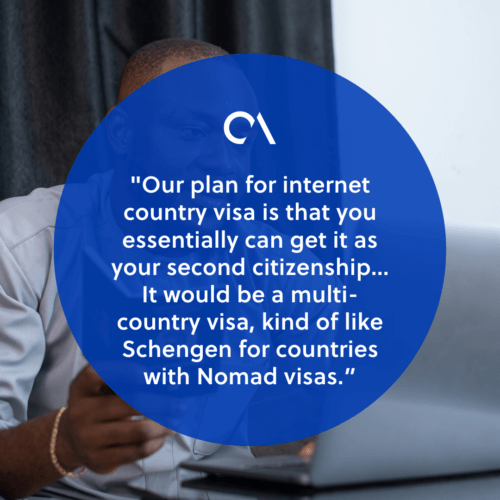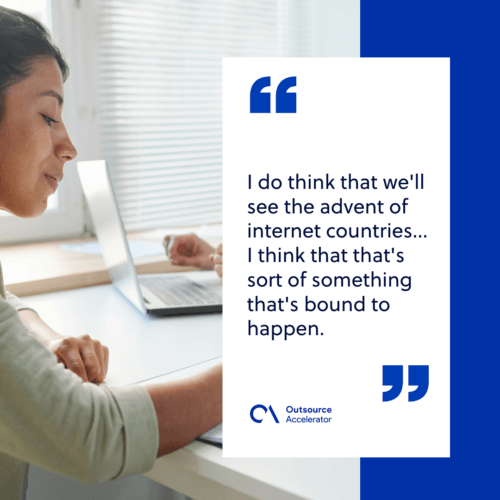Globalisation Conundrums And Future Potential – with Sondre Rasch of SafetyWing

In this week’s episode of the Outsource Accelerator Podcast, Derek is joined by Sondre Rasch, the Co-Founder and CEO of SafetyWing. SafetyWing offers “premium health insurance for remote companies and their global teams.”
Derek and Sondre discussed SafetyWing’s vision for a “Country on the Internet,” the challenges ahead, and how these things will shape the future of remote work.
About SafetyWing
The advent of remote work and digital nomadism is enabling new models of global employment and insurance. SafetyWing is a startup company that aims to build an infrastructure to support this emerging digital economy.
The firm provides a global safety net: “If you go to our website, you could buy health insurance for digital nomads or remote teams, and that’s a global health insurance that works in any country in the world that are used by digital nomads or remote teams,” Sondre explained.
“But the concept of a global safety net “is not just health, but also kind of income protection, kind of the welfare state idea,” he added.
Sondre’s ambitions extend far beyond insurance, as SafetyWing’s broader mission involves universal basic income protection and digital citizenship.
SafetyWing’s “Country on the Internet” vision
SafetyWing’s Country on the Internet” vision encompasses two components: (i) Bundle citizenship as a service; and (ii) Passport.
The first part is a “social safety net.” This means paying [US$299] “hopefully per month” and getting a “sort of health insurance, but also all the income protection, meaning disability, unemployment, parental leave, etc.”
Digital passports and multi-country visas
The other component of Sondre’s “Country on the Internet” mission is providing digital passports and multi-country visas.
Sondre took pride in SafetyWing “popularizing the idea of Nomad visas,” which led to over 85 countries adopting the policy.
Nomad visas allow longer-term stays without requiring full residency or work permits.
“So our plan for internet country visa is that you essentially can get it as your second citizenship, so your online country.
You would apply to our website, but it would be even more than a passport. It would also be a multi-country visa, kind of like Schengen for countries with Nomad visas,” he explained.

Navigating global labor laws and taxation
While SafetyWing’s approach to global employment and insurance fosters location-independent living, in reality, digital nomads still face regulatory and compliance hurdles.
Derek cited, “If more and more people become kind of globalized, then they’re going to need better infrastructure to support that.” This infrastructure extends to employment contracts, global employment laws, insurance, and taxation.
Despite the said challenges, Sondre discussed how the shipping industry has dealt with working internationally in the past.
He compared it to a “situation 140 years ago when steamships were invented.” It led shipping companies to realize the international nature of their operations.
“It was this period where first some did it, and then a lot of people did it. It took still a few decades, but they essentially then made an entity for their boat elsewhere.” Many companies created entities for their ships in different locations to benefit from favorable rules.
Sondre believes this experience mirrors the current trend in the digital and remote startup scene. Nowadays, companies often register in locations with advantageous regulatory and tax environments.
“There’s a disproportionate amount of the remote startups are being registered in places like Singapore or Estonia, previously a lot in Hong Kong as well…So you had these places that became very popular to register, which have very favorable regulatory rules and tax rules.”
The rise of digital nomadism spurs simplified global systems
Digital nomadism will drive changes in regulatory systems over time. Sondre remains optimistic that increased connectivity will lead to a more unified global identity and society in the long run.
According to Sondre, “I do think that we’ll see the advent of internet countries. I don’t think that’s just safe doing. I think that that’s sort of something that’s bound to happen.”

As digital nomadism gains steam, companies like SafetyWing remain at the forefront of turning location-independent living into reality. By building digital infrastructure, they aim to empower remote workers to transcend borders and transform work on a global scale.
To learn more about SafetyWing and its featured services, you may visit its website at https://safetywing.com/.







 Independent
Independent




